Air Raid to Al-Waleed (10)
The Story of Demolishing Fighters and the Equipment in Al-Waleed Triple Military Bases Known as H-3
2016-2-29
Air Raid to Al-Waleed (H-3)
The Story of Demolishing Fighters and the Equipment in Al-Waleed Triple Military Bases Known as H-3
By: Brigadier General Ahmad Mehrnia
Tehran, Sooreh Mehr Publications Company
2010 (Persian Version)
Translated by: Zahra Hosseinian
Early morning, authorities came to official site by organizational cars and other pilots by minibuses which had been sent, and all gathered in the purpose room of command post. In the minutes that they yet hadn’t been aware of the reason for gathering, whispered ‘what's going on?’, ‘What is this mission that all pilots were gathered here for?’ Pilots have been got into going to combat missions and accepted its losses somehow. Even they are fully aware of what happened next. But there is a good thing in humans that pilots are not exception too: the man does not believe that the next one of hereafter list is he, but he always thinks that death is for the next one! However, it is clear that this operation differs from past missions. It must be an important target. Some guys exchange jokes sometimes, may be the space changes.
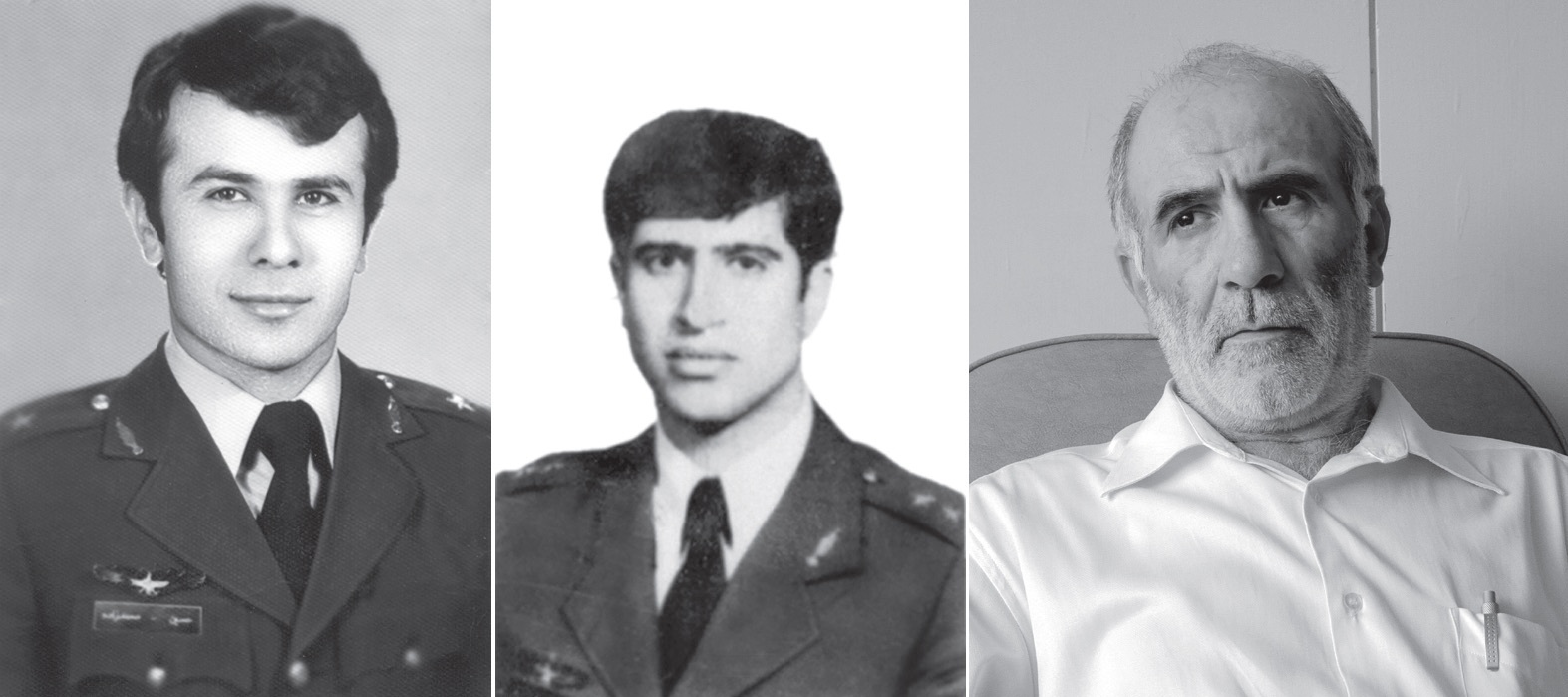
Second Brigadier General Siyavash Moshiri (2009), Lt. Asghar Fathnejad and Col. Hussein Mohammadzadeh (second lieutenant)
Other pilots who had participated in this round of actions were:
- Capt. Mahmoud Eskandari and in rare cabin, Lt. Siavash Moshiri,
- Capt. Sirous Baheri and in rear cabin, First Lt. Seyyed Hassan Hosseini,
- Capt. Ali Asghar Fathnejad[1] and in rare cabin, First Lt. Hossein Mohammadzadeh Cheraghchiha.
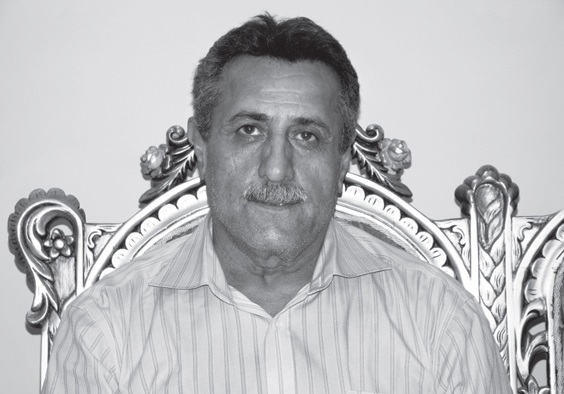
Brigadier General Sirous Baheri (2008)
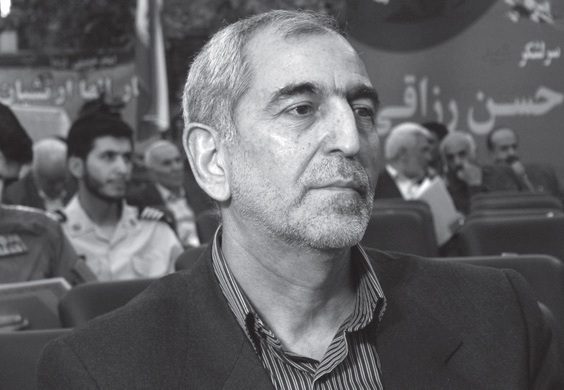
Col. Seyyed Hassan Hosseini
Also, I can mention to Capt. Iraj Osareh, Capt. Nasser Rezaei, Capt. Mohammed Ateeghechi, Capt. Mohammed Rahimpour Farzaneh, Capt. Mahmoud Ghadiri and First Lt. Bahman Soleimani, First Lt. Mansoor Elahi, First Lt. Mohammad Javanmardi, First Lt. Naser Bagheri, First Lt. Mohammad Reza Khaleghi, and... .
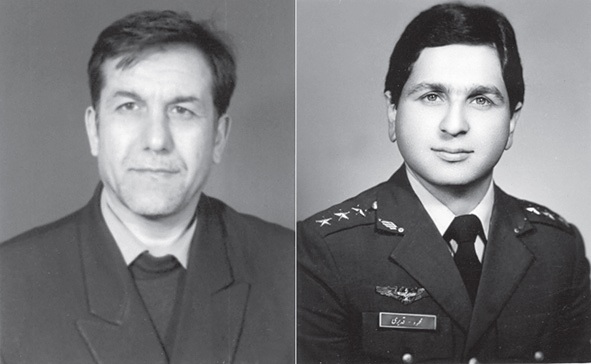
Col. Mahmoud Ghadiri (Captain) and Col. Mohammad Reza Khaleghi (2006)
Base commander, who leads the group, arrives and welcomes them warmly. Then, he informs them about the generality of mission. Major Baratpour, the sub leader[2], is justified absolutely in private about the important details. According to the lesson to be learned from previous mission, a secondary mission is defined for pilots in planning the new attack; so that, if they unable to continue for any reason, bomb another location which predetermined, and then return to insider base.
Some amount of Iraqi dinar and US dollar is given to each pilot, so, if an unforeseen circumstance happened and the pilot left the aircraft – of course if not captured - can provide their basic needs for a few days and find a way for exiting the enemy’s territory.
Shortly before the sun rises, all acts is done before the flight and pilots go to equipment rooms to pick up their flight caps, gravity suits (or G suit) and other supplies they need, and go to the location of aircraft parking. Some are happy that they will give a great shock to Ba’athist Iraqi in a few hours. Due to approaching the Nowruz, some think that if something occurs, what their families will do. They know that their wives have woken up from the moment they have left their houses and moment by moment look forward them. Anxiety and fear is spotted in few faces, which is natural in such missions. Sometimes, for strengthening the spirit of companions, one or two guys who are humorous, utter some jokes to cause laughter their friends, although coldly.
The wife of one of the same group pilots narrates:
“Combat flights of my husband usually were done early morning. Although being one of authorities, but he was very interested in participating all risky and important missions. For this reason, often around three of the morning, he woke up gently by alarm clock and while would try not to waken me as far as possible, leave the house to go to his office. I always would pretend to sleep when he was going to leave, so not to worry him. Perhaps a few minutes after his leaving I was being involved with myself, perhaps to suggest that there is nothing to be worry about and like before days, he will come for lunch! But the sleeping bird had flew and been replaced by demon of annoying thinking and fancies. I would try to busy myself by whispering prayers, but then I would remember the other families of my husband’s colleagues who had been captured or martyred and their families would live in difficult conditions. One might not believe that for spending hours and busying myself at that hour of night, I would gather some clothes and throw them into washing-machine and sit beside it, so that the noise of machine don’t let me to think. Close to the morning call to pray, I would busy myself by hanging laundry at that cold air at dawn. After, I myself would laugh to my work and say if somebody sees me, must think that I am crazy! Minutes and hours would elapse very slowly, as if the wheel of world was spinning slowly. When I would think my husband must be returned from a mission, I wouldn’t dare to call. Always I would scare to hear the news that makes me to jump out of my skin. Anxiously I would walk around the room and do everything to bear the moments. Finally, I would take the plunge and phone to my husband’s office at noon. He had returned and busied with next plans ... When I would protest him why not inform me after your backing, so at least I calm down a little. ‘I think you’ve forgotten that you are a pilot’s wife!’ he would say, ‘you should ready for enduring very hard conditions and not to be worry if I was late!’ it is an answer that I have not able to deal with until today.”
Four tankers Boeing 707 piloted by Capt. Hassan Bani-Adam and Parviz Varzandi in the first aircraft [3], Capt. Luther Yadegari (one of our Christian countryman) and Capt. Gholam Hossein Esfahani in the second aircraft, Major Behzad Moezi and Capt. Asghar Motlagh in the third tanker, and Capt. Parviz Freidounzadeh and Mahdi Pakbonyan in the fourth aircraft - two of them for the first stage of delivering fuel and two for returning of Phantoms, respectively - take off from Mehrabad and head to their holding position. Tankers must also provide fuel for F-14 fighter, so that they can do well air cover of around the area.
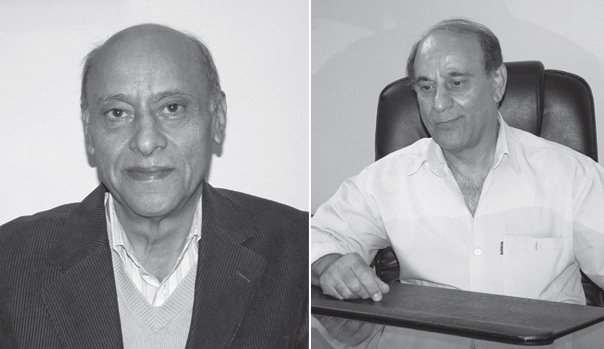
Second Brigadier General Parviz Varzandi (2009) and Hassan Bani-Adam (2008)
The crews of these aircrafts don’t know the details of the case, but their battalion operation officer, Capt. Hassan Bani-Adam has participated in the justifying meeting in which all the participants of mission had taken part in Tehran, and at his duty level, has filled pilots in on. Flight at low altitude and delivering fuel to fighter/bombers were not very pleasant for them, but there is no choice for military but to obey.
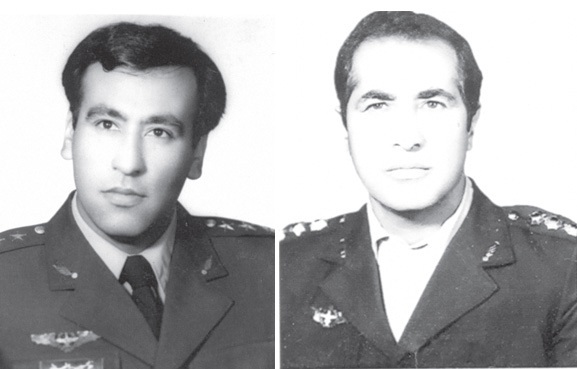
Col. Luther Yadegari and Gholam Hossein Esfahani (Lieutenant)
To be continued…
[1]. In flight group, one of pilots is determined as substitute leader in critical circumstances that called Sub leader. If something happen for the leader that can’t guide the flight group, he will take the responsibility of leading.
[2]. Each Boeing 707 has at least five crews which is consists of two pilots, one flight engineer, one boomer, and one crew chief. Unfortunately, there was no possibility to identify and record the name of all the colleagues.
[3]. On March 16, 1985, during a combat operation, Ali Asghar Fathnejad along with Capt. Abdolsaleh Rezai (in rear cabin) received a blow of air-to-air missiles and martyred in the West of country; Rest in peace.
Number of Visits: 8373








The latest
- The Artillery of the Islamic Revolutionary Guard Corps
- Translation in Oral History and Its Potential Pitfalls
- 100 Questions/14
- Third Regiment: Memoirs of an Iraqi Prisoner of War Doctor – 14
- Analysis and classification of oral literature of resistance using emerging technologies
- 100 Questions/13
- Preface and Introduction in Oral History Books
- Oral History of 40 Years
Most visited
- 100 Questions/13
- Preface and Introduction in Oral History Books
- Oral History of 40 Years
- Third Regiment: Memoirs of an Iraqi Prisoner of War Doctor – 13
- 100 Questions/14
- Analysis and classification of oral literature of resistance using emerging technologies
- Translation in Oral History and Its Potential Pitfalls
- Third Regiment: Memoirs of an Iraqi Prisoner of War Doctor – 14
100 Questions/8
We asked several researchers and activists in the field of oral history to express their views on oral history questions. The names of each participant are listed at the beginning of their answers, and the text of all answers will be published on this portal by the end of the week. The goal of this project is to open new doors to an issue and promote scientific discussions in the field of oral history.The Role of Objects in Oral Narrative
Philosophers refer to anything that exists—or possesses the potential to exist—as an object. This concept may manifest in material forms, abstract notions, and even human emotions and lived experiences. In other words, an object encompasses a vast spectrum of beings and phenomena, each endowed with particular attributes and characteristics, and apprehensible in diverse modalities.100 Questions/6
We asked several researchers and activists in the field of oral history to express their views on oral history questions. The names of each participant are listed at the beginning of their answers, and the text of all answers will be published on this portal by the end of the week. The goal of this project is to open new doors to an issue and promote scientific discussions in the field of oral history.The Importance of Pre-Publication Critique of Oral History Works
According to the Oral History website, a meeting for critique and review of the book “Oral History: Essence and Method” was held on Monday morning, November 10, 2025, with the attendance of the book’s author, Hamid Qazvini, and the critics Mohammad Qasemipour and Yahya Niazi, at the Ghasr-e Shirin Hall of the National Museum of the Islamic Revolution and Sacred Defense.

